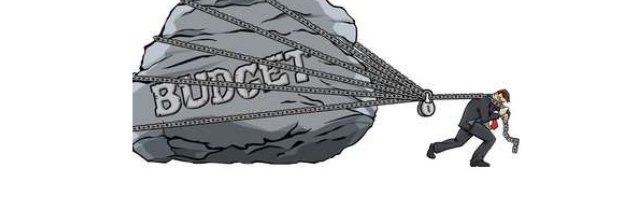SACRIFICES MUST be made. The question is how much, by whom and at what cost.
Ordinary working people, from retail and restaurant workers to office clerks to nurses, are carrying the unequal burden of economic adjustment.
This is felt deep in the bones of families in terms of increased prices at the gas pump, or the uncertainty of month-to-month contracts, or lay-offs without sufficient labour opportunities anywhere in sight.
It’s almost impossible for thousands willing to make an honest living wage to make ends meet, qualify for a loan, buy a house, build family savings or even know if they can afford medicine and school books in one year’s time.
Even attractive VSEP packages cannot simply be reinvested or turned into new income among those forced to become entrepreneurial for the first time in their 50s. Entrepreneurship rarely leads to economic security or wealth, and access to health and other labour benefits. Meaning if you can’t work, you starve, you wait two days to see a doctor in the hospital, and when there’s a downturn or too much competition, minor profits evaporate.
The lesson from the Caroni (1975) Ltd shutdown is that the psychological impact, which can hardly be managed by four or six EAP sessions, rolls out across communities through increased intimate partner conflict and violence, child sexual abuse and incest, substance abuse, and undiagnosed depression, particularly when men’s sense of masculinity is also at stake.
The myth and reality of women’s ability to make miracles out of scarcity, and the basics of the welfare net, are holding household budgets together by a shoestring.
Still, don’t fool yourself that such survival produces children that are well. Policymakers rely on people’s capacity to live on very little, but they don’t fully consider or cost how much children suffer or truly fail to thrive.
Thinking about all this, I called up Ozzie Warwick, chief education and research officer of the OWTU. Both his parents lost their jobs around 1987, under the NAR. Ozzi will tell you he had to eat bread and butter with sugar water during the week, and stretch one chicken from Saturday to Sunday among a family of six. He was in QRC, but none of his other siblings passed for seven-year schools.
It’s likely that the 1,486 students who scored no pass marks in the Caribbean Secondary Education Certificate exam this year were from homes pressured by such economic stresses and harms. The burden of belt-tightening had a direct impact on the children in his family, as it will on others today.
I asked Ozzi the questions that seem so obvious. Shouldn’t the gas subsidy be removed? Don’t jobs have to be cut in bloated public sectors? Isn’t our national problem one of champagne taste and mauby pockets?
There are different ways to deal with a subsidy, he said, but it’s important to understand that it ensured widespread benefit to all citizens, whether rich or poor or single mother on minimum wage, from our national resources.
We fall for the story of cutbacks while no more empowered to stop corruption and elite collusion, or the stranglehold of party patronage. We see businesses benefit from subsidised electricity and water rates, which they rely on for profit rather than to live from day to day. We see banks booming when people are being made to sacrifice even while their actual income value falls.
The long expected Petrotrin crisis, as Bhoe Tewarie pointed out, is also related to “the debt created by the Malcolm Jones-led board in 2005” which has now become due, and requires a payment of US$850 million in August 2019 which cannot be met.
Ozzi also argued that rating agencies downgrading of Petrotrin and the country’s credit rating is something which a government reliant on borrowing wants to avoid. Yet, shouldn’t the reports and the decisions that follow be debated in Parliament where we can hear all sides?
As we said our goodbyes, Ozzi highlighted labour’s economic alternative plan. He cited Barbadian PM Mia Mottley’s approach to stimulate and stabilise growth through public investment and to default on debt rather than lead Barbados down an IMF-advised road that made Jamaica poorer today than 30 years ago.
We are all in pain, but it’s worse when there is inequity. Fair sharing of national hardship and wealth is the guarantee that government should provide. This should make us all call for consensus on how to share the national burden of adjustment and its impact on our lives.



